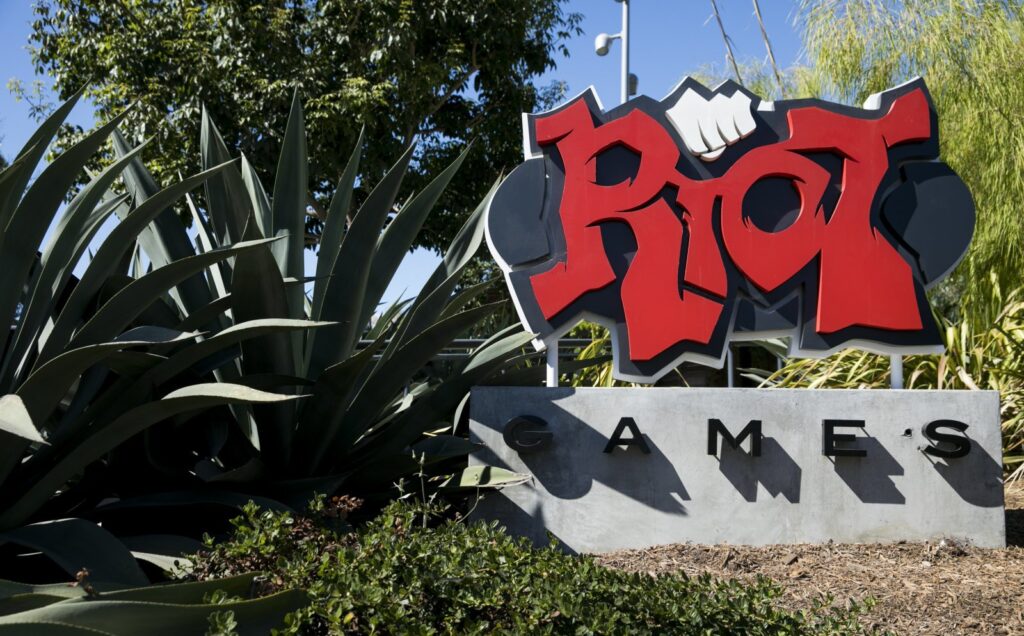
League of Legends developer Riot Games, which according to a Kotaku report from last year has been trying to reverse a “culture of sexism,” is now being compelled by the State of California to share its employee pay data to assist with an ongoing investigation into gender discrimination at the company. An official investigation enforcement action was filed by the Department of Fair Employment and Housing (DFEH) in Los Angeles County Superior Court.
The DFEH claims that Riot Games “has refused to provide the Department with adequate information for DFEH to analyze whether women are paid less than men at the company. DFEH seeks the information as part of an investigation into alleged unequal pay, sexual harassment, sexual assault, retaliation, and gender discrimination in selection and promotion.”
Director Kevin Kish added, “When companies fail to cooperate voluntarily with our investigations, including with our investigative discovery, DFEH will exercise its right to seek assistance from the courts. Doing so ensures our investigations are informed by relevant evidence and completed without unnecessary delay.”
For its part, however, Riot Games has countered DFEH, noting in a statement acquired by Kotaku that it’s actually been cooperating all along and has already supplied DFEH with “several thousand lines of pay data so far.”
According to Riot, “We’ve been in active conversations with the DFEH since its inquiry began. Investigations like this can arise when there have been allegations of workplace disparity and we’ve been cooperating in good faith with the DFEH to address its concerns. During this time, we’ve promptly responded to the DFEH’s requests, and have produced over 2,500 pages of documents and several thousand lines of pay data so far. We’ve also made several recent requests that the DFEH participate in a call with us to address their requests. To date, these requests have been unanswered, so we’re frankly disappointed to see the DFEH issue a press release alleging that we’ve been non-cooperative.
“We’re confident that we’ve made substantial progress on diversity, inclusion, and company culture, and look forward to continue demonstrating this to the DFEH.”
Following Kotaku’s investigative report last year, Riot suspended its COO Scott Gelb for inappropriate conduct with staff, multiple employees filed a class action lawsuit against the company, and Riot even sought to force employees into private arbitration while some threatened a walkout. All told, more than 150 staff staged a walkout from Riot’s LA office, marking the first time in game development history that such a protest took place.
In March of this year, Riot outlined an entire rewrite of its core values at the studio and how it’s changing its workplace culture. The company quickly followed that action with the appointment of Angela Roseboro as its first Chief Diversity Officer, a role she previously held at Dropbox.
The road ahead for Riot Games will be a long one. Complying with the DFEH is just the beginning. Ensuring equal pay and treatment for all employees is critical, but over the long-term Riot must earn back the trust of current employees and the development community at large if it wants to retain the necessary talent to create more great IP like League of Legends.
And let’s be clear: this isn’t just a Riot Games problem. Games and the entire tech sector have been grappling with sexism and gender pay gaps for years. The good news is that as companies are forced to submit employee pay data, some progress has been made. Liz Prince, who runs recruitment firm Amiqus in the UK and launched the “G into Gaming” initiative, noted during a panel at Casual Connect London that reports on gender pay gaps have “spurred some into action in the games industry.”
 GameDaily.biz © 2025 | All Rights Reserved.
GameDaily.biz © 2025 | All Rights Reserved.